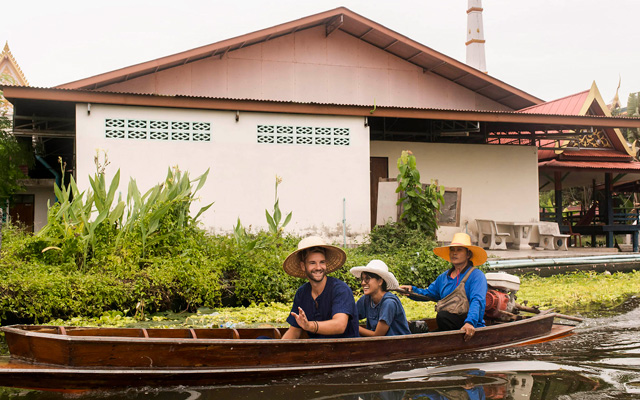Airbnb has released its proposed regulatory principles for short-term accommodation in Thailand, which the home-sharing giant says would support the Thai government’s goal of driving tourist growth in the country and diversifying Thai tourism.
These principles would support local priorities and reflect Thailand’s unique needs, and are consistent with best practices for regulating short-term accommodation regionally and globally, the company said in a statement.

The regulatory principles also reflect latest research conducted by Expedition Strategies in late 2018, which found that 88 per cent of Thai people would support residents in their neighbourhoods sharing their homes, 89 per cent would consider using short-term accommodation in the future and 84 per cent believe short-term accommodation is good for communities because it will bring tourists to more areas where they will spend money.
Airbnb’s proposed regulatory principles, which was developed following meetings with multiple government departments and industry stakeholders, include:
A simple online registration system for short-term accommodation to ensure compliance and promote high safety standards.
A differentiated approach to regulation which distinguishes between the various types of short-term accommodation activity. For example, regulations should differentiate between someone sharing a room in their home, their own home occasionally or someone with a vacation rental for full commercial purpose.
There should be an industry-wide approach to regulation and close cooperation between all industry participants and regulators in implementing regulations.
As well, tough but fair penalties for bad behaviour should be imposed, said the travel giant.
“Airbnb wants to be a good and responsible partner to the government and do what we can to help Thailand achieve its tourism objectives. Already, our local community is helping to grow and diversify the Thai tourism industry and spread the benefits of tourism to local communities across the country, particularly those in emerging destinations like Buriram,” Airbnb’s head of public policy for South-east Asia, Mich Goh, said.
“For some time, we have listened to local authorities and sought to better understand their priorities. We appreciate the balanced and forward-looking approach the Thai government has considered to take in developing a modern regulatory framework for short-term accommodation.”




















